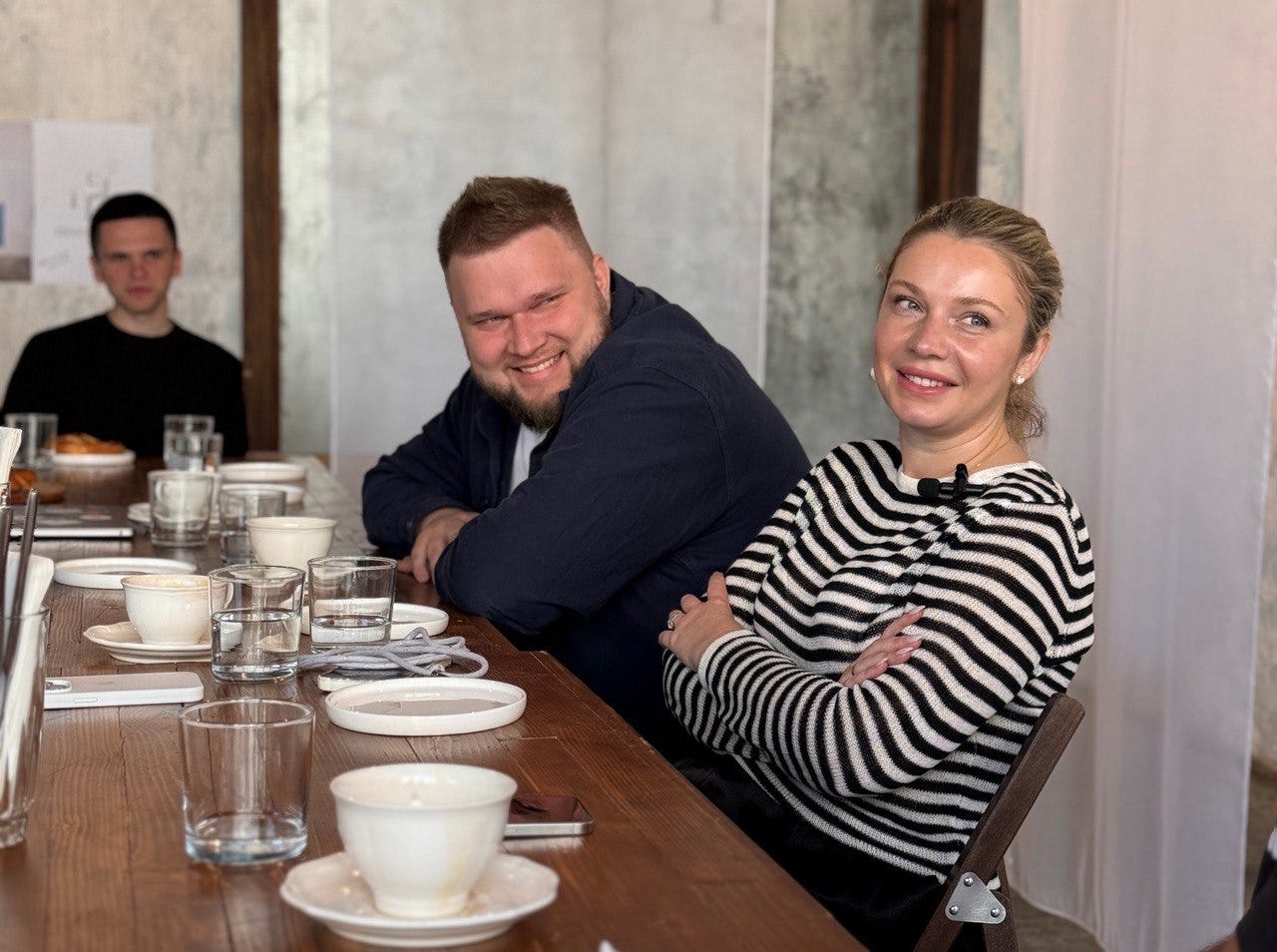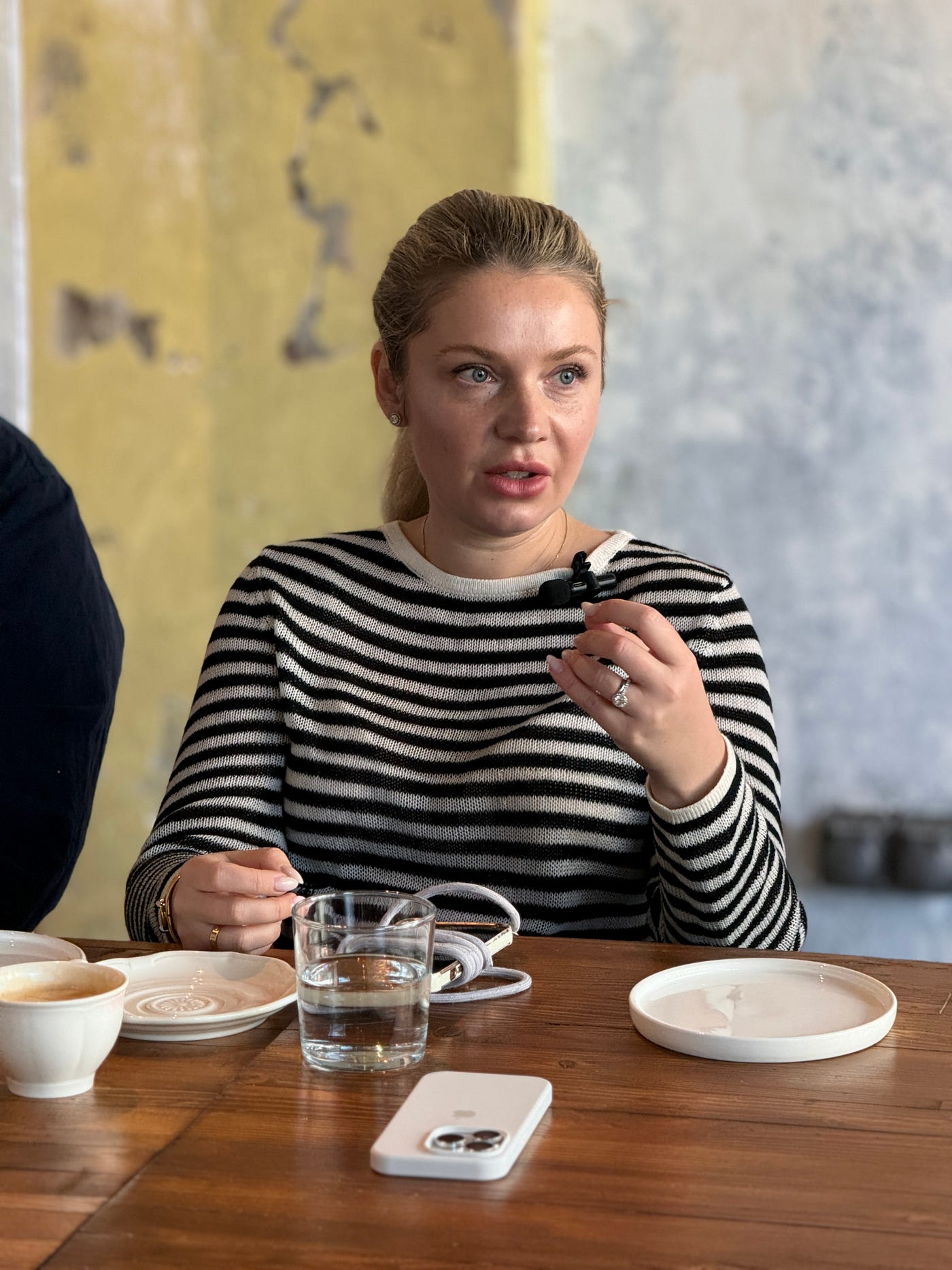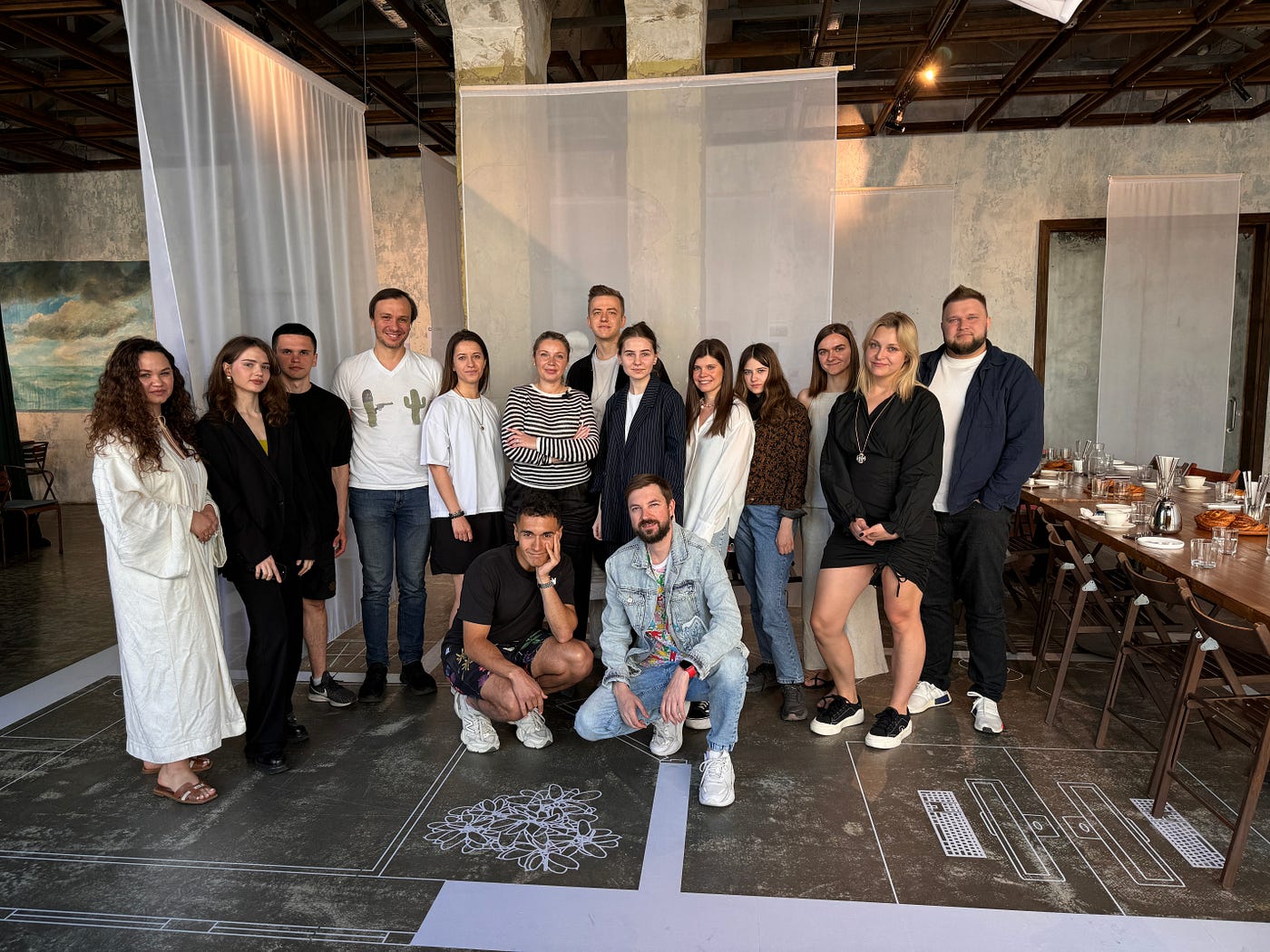June 6, 2024
August 16, 2025
As part of the Mission Possible venture building program, we hold weekly business breakfasts where experts, leaders, and investors discuss the latest in tech and innovation. One of our mentors, Nina Levchuk, recently joined one of these breakfasts to share her advice on creating successful startups and to share her extensive experience in the tech industry.

Nina Levchuk — Startup & VC industry leader at Google DACH, the founder of Impact Force and Tech Circle, an active player in the Ukrainian tech scene, and one of Davos’ young innovators. With 12 years in tech, including 11 at Google, she’s got the chops to back up her insights.
Born in Kyiv, Nina moved to New York at 20, and later to San Francisco, where she gained invaluable experience in Silicon Valley working with startups and big corporations.
She’s also a social activist, focusing on female entrepreneurship. She is the initiator of numerous projects, such as Google Digital Academy for Women, which has helped over 50,000 women learn to build their own businesses.
Five years ago, Nina was invited to build a team to position Google as the top partner for venture funds. Their goal is to forge strong relationships with VCs, quickly identify talent, and provide them with support.
Nina’s team works closely with investors, offering early-stage startups business consulting, team development, extensive founder training, and help in adapting business models.
Nina stressed that the best startups are those that can pivot quickly. Flexibility and adaptability are crucial for founders.
“If a founder is very close-minded and has only one vision, it’s a sign not to invest.”
It all starts with an idea, but not every idea can become a business.Having a cool idea isn’t enough — many others might have the same idea. It’s crucial to know how you’ll implement it, bring it to market, and scale it.
The first question investors ask is about market size. Nina notes the importance of quickly adapting and showing global potential, including entering other markets.
The second key aspect is traction. At early stages, Nina recommends user interviews and product testing. Traction doesn’t necessarily mean profit or user numbers; it can be product testing and potential user interest.
Have a pivot plan for the next 2–3 years and be ready for changes.Investors often ask tough questions, so knowing how your business can pivot in different scenarios is crucial.
The team matters a lot. If you can have co-founders who’ve already gone through scaling a startup, it’s a huge advantage. Experience is highly valued by investors, even if the startup has failed.
Startup culture is vital. Building a strong culture from the start is important. Fast-growing startups often neglect this, but having clear values ensures people stay with the company for more than just the idea — they stay for the relationships too.
“I, for example, love to invest in startups that have a good internal culture.”
Fundraising has changed. During Covid, everyone chased numbers and hypergrowth. Now, bootstrapping is better than seeking excessive external investments.
“If you have the opportunity to bootstrap as long as you can, do it.”
Startups that develop independently and achieve traction over 1–2 years attract more attention and have a better chance of getting investors. But you need a stable business model because investors look at how well you can scale with additional funding.
Nina acknowledges that bootstrapping may be slower, but it helps maintain control and avoid the risks of overvaluation and losing a large share of the company.
The last indicator is timing. Great startups can fail due to poor market timing. Study the market and its needs before launching.

If a startup is overvalued at the Seed round, it can complicate attracting follow-up investors without significant growth and positive financial metrics.
Nina shared examples of startups that, after a high initial valuation, struggled with traction and had to resort to bridging, which is not a good sign.
Focus on a healthy startup valuation and showing traction, which will attract investors for future funding rounds. Investors prefer this approach due to favorable growth prospects.

Nina Levchuk’s main mission is to help people and be part of positive global change. She believes that helping others brings more than focusing solely on personal career and business. Her experience with over 50,000 students through her programs reinforces this idea and helps her maintain mental stability and find meaning in her work.
“By helping others, a person develops themselves.”